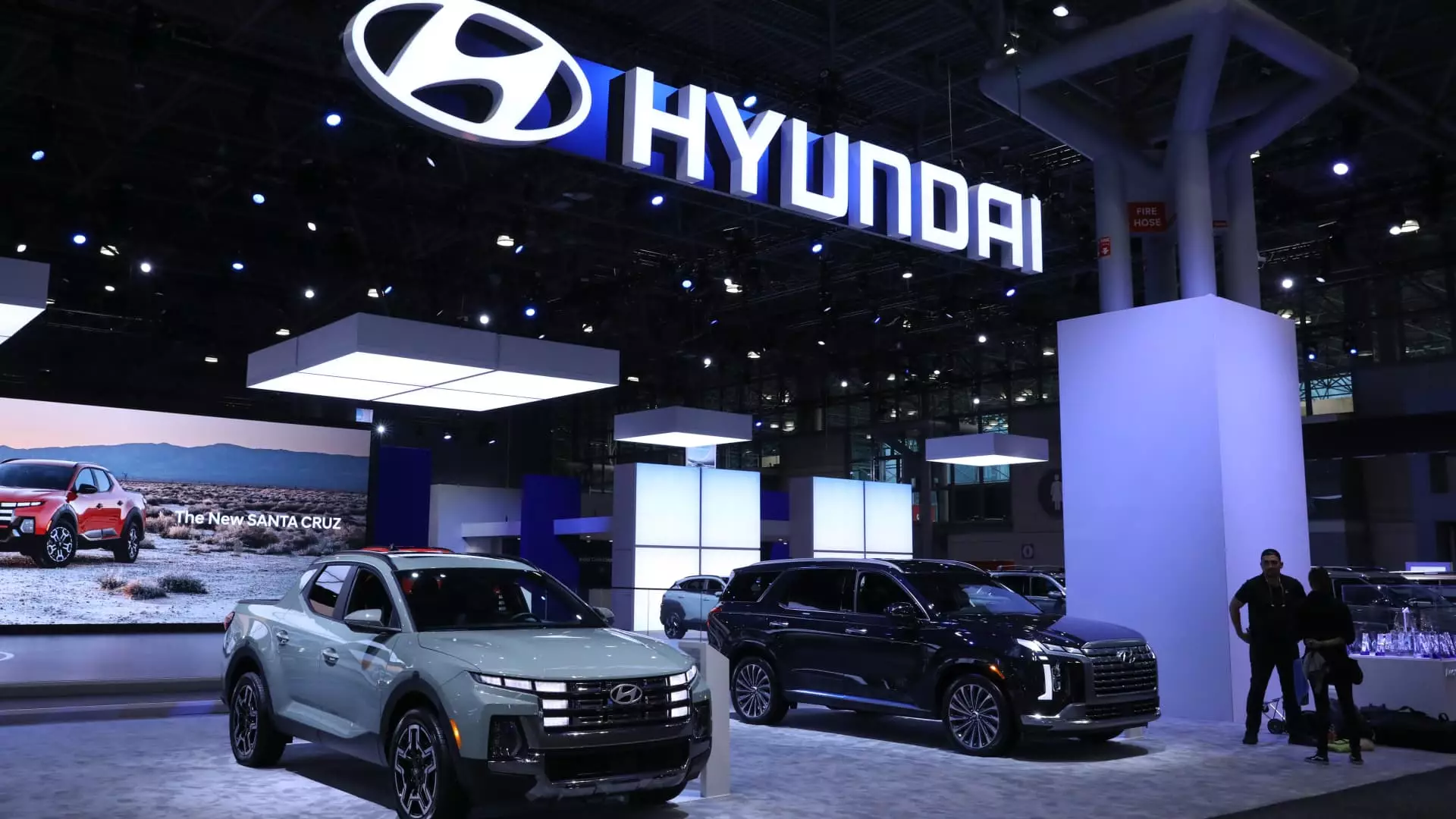In a strategic move that sends ripples through economic landscapes, South Korea’s automotive giant, Hyundai, is poised to announce a whopping $20 billion investment in the United States. This extensive injection of capital—comprised of a $5 billion steel plant in Louisiana—isn’t merely about creating jobs; it’s about redefining the framework of U.S. industrial competitiveness amidst the chaos of global trade wars and shifting economic dynamics. The anticipated announcement comes at a crucial time, as the U.S. grapples with an imbalance in international trade and seeks to bolster its manufacturing sectors. Hyundai’s commitment sharply contrasts with the fraught narratives that often dominate the economic discourse.
Job Creation in an Era of Automation
The new steel plant in Louisiana is expected to bring approximately 1,500 jobs, a boon for a region that has long felt the impact of industrial decline. Yet, beneath the surface celebration lies an undercurrent of caution. While job creation is vital, we must also acknowledge the pervasive trend of automation that accompanies industrial advancements. What does it mean for communities, such as those in Louisiana, when the promise of ports and smokestacks might merely lead to jobs requiring advanced skills and fewer blue-collar positions? It’s an imperative conversation to engage in, especially as America hustles towards a future where knowledge-based jobs will proliferate at the expense of traditional manufacturing roles.
A Strategic Move Against Tariffs
Hyundai’s decision also speaks volumes about corporate strategy in an era marked by the looming specter of tariffs and trade wars. By localizing production, Hyundai can effectively sidestep the financial pitfalls associated with tariffs that the Trump administration has imposed. CEO José Muñoz has pointed out that increasing localization is essential to navigating the complexities of international trade. This proactive approach serves both their interests and reflects a business acumen that can inspire other companies grappling with similar uncertainties.
The Broader Implications for U.S.-South Korea Relations
While the financial implications for Hyundai are clear, this investment also carries psychological weight within U.S.-South Korea relations. With President Trump openly criticizing the trade imbalance between nations, statements and actions like Hyundai’s could serve as a counterpoint to protective rhetoric. It demonstrates a tangible commitment to collaboration and mutual benefit, albeit overshadowed by the geopolitical chess games that characterize modern trade negotiations. By significantly ramping up operations within U.S. borders, Hyundai is not just defending its interests; it’s also contributing to a fragile alliance at a critical juncture.
Navigating Competition in the EV Market
Hyundai’s expanded investment goes hand-in-hand with its ambition to compete vigorously in the electric vehicle (EV) market. As the company aims to solidify its position against giants like Tesla, the launch of new plants not only enhances its production capabilities but also positions its brand favorably within an increasingly eco-conscious consumer base. The production of next-generation steel, specifically crafted for EVs, indicates a forward-looking strategy. As demand rises for cleaner transportation solutions, Hyundai’s steps today could very well ensure its dominance in the automotive landscape of tomorrow.
In a time when U.S. industries must adapt swiftly to global pressures, Hyundai’s bold $20 billion investment holds the promise of reimagining what American manufacturing can look like. It resonates deeply within the dual narratives of opportunity and responsibility, and leaves us questioning how we can balance both effectively.

